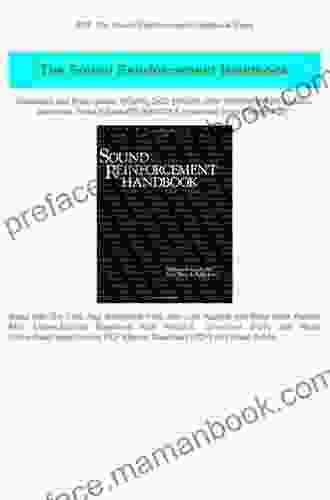Debt, the IMF, and the World Bank: A Complex Interplay

The intricate relationship between debt, the International Monetary Fund (IMF),and the World Bank has profoundly shaped the economic landscape of developing countries. This article delves into this complex interplay, exploring the impact of these institutions on debt sustainability, economic growth, and global economic stability.
Debt and Developing Countries
Developing countries often face significant challenges in managing their debt. External debt can impose a heavy burden on their economies, limiting their ability to invest in essential services such as healthcare, education, and infrastructure. The accumulation of unsustainable debt can lead to economic crises, with severe consequences for citizens.
4.3 out of 5
| Language | : | English |
| File size | : | 3992 KB |
| Text-to-Speech | : | Enabled |
| Enhanced typesetting | : | Enabled |
| Word Wise | : | Enabled |
| Print length | : | 365 pages |
| Screen Reader | : | Supported |
The IMF and World Bank play a significant role in addressing debt problems in developing countries. These institutions provide loans and financial assistance to help countries repay their debts and implement economic reforms aimed at promoting sustainable growth.
The International Monetary Fund
The IMF is an international organization that provides financial assistance to countries experiencing economic difficulties. Its primary role is to promote global monetary stability and facilitate international trade. The IMF's loans are typically accompanied by conditions known as "conditionalities," which require recipient countries to implement specific economic policies.
Conditionalities often include measures such as fiscal austerity, currency devaluation, and structural adjustment programs. These policies aim to stabilize the economy, reduce inflation, and promote economic growth. However, they can also lead to social and economic hardship in the short term.
The World Bank
The World Bank is an international financial institution that provides loans and grants to developing countries. Its mission is to promote economic development and poverty reduction. The World Bank's lending is typically focused on specific projects or sectors, such as education, healthcare, and infrastructure.
Unlike the IMF, the World Bank's loans do not typically come with explicit conditionalities. However, the Bank may encourage recipient countries to adopt certain policies or reforms that are consistent with its development goals.
The Impact of IMF and World Bank Policies
The IMF and World Bank have been criticized for their policies, which have been accused of exacerbating inequality, undermining social protection, and promoting a narrow focus on economic growth at the expense of social and environmental well-being.
Supporters of IMF and World Bank policies argue that they provide essential financial assistance to developing countries and help them implement reforms that promote economic stability and growth. They maintain that conditionalities are necessary to ensure that loans are used effectively and that countries adopt policies that align with their long-term development objectives.
Debt Relief and Sustainability
The IMF and World Bank have recognized the importance of debt sustainability and have implemented initiatives aimed at reducing debt burdens in developing countries. These initiatives include debt relief programs, such as the Heavily Indebted Poor Countries (HIPC) Initiative, and the establishment of debt management frameworks.
Debt relief can provide significant breathing room for developing countries, allowing them to invest in essential services and promote economic growth. However, it is important to ensure that debt relief is sustainable and does not lead to future debt crises.
The relationship between debt, the IMF, and the World Bank is complex and multifaceted. These institutions play a significant role in shaping the economic landscape of developing countries, with both positive and negative consequences. Understanding the impact of their policies is crucial for policymakers, development practitioners, and citizens alike to ensure that the benefits of globalization are shared equitably and that the pursuit of economic growth does not undermine social and environmental well-being.
4.3 out of 5
| Language | : | English |
| File size | : | 3992 KB |
| Text-to-Speech | : | Enabled |
| Enhanced typesetting | : | Enabled |
| Word Wise | : | Enabled |
| Print length | : | 365 pages |
| Screen Reader | : | Supported |
Do you want to contribute by writing guest posts on this blog?
Please contact us and send us a resume of previous articles that you have written.
 Top Book
Top Book Novel
Novel Fiction
Fiction Nonfiction
Nonfiction Literature
Literature Paperback
Paperback Hardcover
Hardcover E-book
E-book Audiobook
Audiobook Bestseller
Bestseller Classic
Classic Mystery
Mystery Thriller
Thriller Romance
Romance Fantasy
Fantasy Science Fiction
Science Fiction Biography
Biography Memoir
Memoir Autobiography
Autobiography Poetry
Poetry Drama
Drama Historical Fiction
Historical Fiction Self-help
Self-help Young Adult
Young Adult Childrens Books
Childrens Books Graphic Novel
Graphic Novel Anthology
Anthology Series
Series Encyclopedia
Encyclopedia Reference
Reference Guidebook
Guidebook Textbook
Textbook Workbook
Workbook Journal
Journal Diary
Diary Manuscript
Manuscript Folio
Folio Pulp Fiction
Pulp Fiction Short Stories
Short Stories Fairy Tales
Fairy Tales Fables
Fables Mythology
Mythology Philosophy
Philosophy Religion
Religion Spirituality
Spirituality Essays
Essays Critique
Critique Commentary
Commentary Glossary
Glossary Bibliography
Bibliography Index
Index Table of Contents
Table of Contents Preface
Preface Introduction
Introduction Foreword
Foreword Afterword
Afterword Appendices
Appendices Annotations
Annotations Footnotes
Footnotes Epilogue
Epilogue Prologue
Prologue Abidemi Sanusi
Abidemi Sanusi Tracy Elman
Tracy Elman Janice Gallen
Janice Gallen Rebecca Jenshak
Rebecca Jenshak Jacques Offenbach
Jacques Offenbach Agatha Christie
Agatha Christie Kevin Dyer
Kevin Dyer Jerry Boyd
Jerry Boyd Grant Chemidlin
Grant Chemidlin Juan Manuel Leiva Macias
Juan Manuel Leiva Macias Molly Ann Wishlade
Molly Ann Wishlade Gordon Brewer
Gordon Brewer Chad C Davidson
Chad C Davidson Jonathan Fields
Jonathan Fields Founding Fathers
Founding Fathers Tripp Ellis
Tripp Ellis Alex Garland
Alex Garland Tequila Connors
Tequila Connors Amy Shojai
Amy Shojai Meghan Quinn
Meghan Quinn
Light bulbAdvertise smarter! Our strategic ad space ensures maximum exposure. Reserve your spot today!

 Alan TurnerThe Dilemma Novel Paris: A Detailed Exploration of Love, Loss, and Redemption...
Alan TurnerThe Dilemma Novel Paris: A Detailed Exploration of Love, Loss, and Redemption...
 Leo TolstoyNights After Him by Nia Sharland: A Hauntingly Beautiful Tale of Love, Loss,...
Leo TolstoyNights After Him by Nia Sharland: A Hauntingly Beautiful Tale of Love, Loss,... Stuart BlairFollow ·18.4k
Stuart BlairFollow ·18.4k Robert Louis StevensonFollow ·9.6k
Robert Louis StevensonFollow ·9.6k John GreenFollow ·16.2k
John GreenFollow ·16.2k Greg FosterFollow ·16.6k
Greg FosterFollow ·16.6k Harold BlairFollow ·14.7k
Harold BlairFollow ·14.7k Nick TurnerFollow ·15.5k
Nick TurnerFollow ·15.5k Octavio PazFollow ·18k
Octavio PazFollow ·18k Haruki MurakamiFollow ·10.2k
Haruki MurakamiFollow ·10.2k

 Vincent Mitchell
Vincent MitchellUnveiling the Enchanting Tale of Plant Reproduction: A...
Plants, the silent yet vibrant...

 Sam Carter
Sam CarterDelve into the Enigmatic World of "Relative Murder: A...
In the realm of mystery and suspense, the...

 Richard Simmons
Richard SimmonsThe Sound Reinforcement Handbook: A Comprehensive Guide...
In the realm of live sound engineering, The...

 Leo Tolstoy
Leo TolstoyEnter the New Era of Cyberwar: Unmasking the Kremlin's...
`` Prologue: The Digital...

 Brenton Cox
Brenton CoxFirst Lessons Ukulele Bridget Baker: A Comprehensive...
Embarking on a musical journey with the...
4.3 out of 5
| Language | : | English |
| File size | : | 3992 KB |
| Text-to-Speech | : | Enabled |
| Enhanced typesetting | : | Enabled |
| Word Wise | : | Enabled |
| Print length | : | 365 pages |
| Screen Reader | : | Supported |










